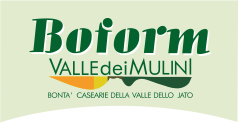Processing
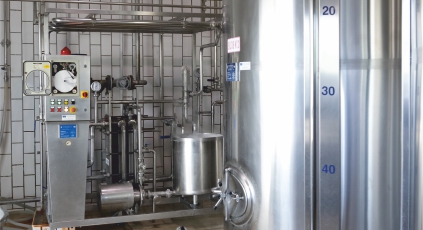
Filtering and Storage
The fresh milk of the day arrives at the dairy factory and before starting the processing it must be filtered to separate any presence of foreign bodies and stored in special insulated silos at a temperature of + 4 °.
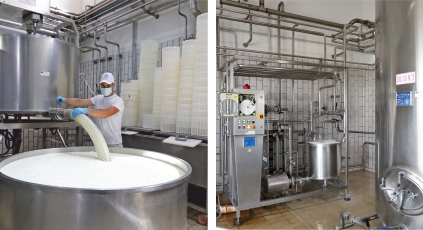
Pasteurization and Coagulation
The milk, previously stored in the silos, is sent to a pasteurization plant and is treated at a temperature of about 74 °; from here the product is directed into the coagulation tanks (polyvalent).
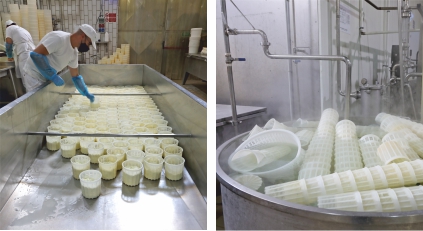
Curd and Shaping
The pasteurized milk is grafted with a selection of lactic ferments and then the rennet is added. At this point, the skills of our cheesemakers come into play as they vary, thanks to their experience, the techniques to use according to the desired product. Once the curd has been unloaded into special trolleys, it is separated from the whey which will be placed in the ricotta room for the production of ricotta cheese. From here, we proceed with the extraction of the curd which is then placed in special molds, which have previously been sterilized, just as tradition teaches.
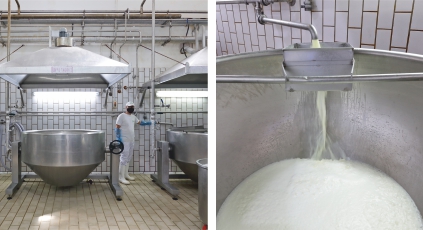
ricotta
The whey obtained from the separation of the curd is sent to the ricotta room and placed in double basins. The whey is subsequently heated at a temperature of 80° and milk and salt are added during this time. Once the ricotta begins to emerge, it is collected by hand with steel ladles and it is then placed in special containers which preserve its flavor and characteristics.
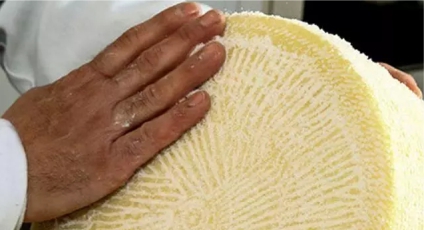
Pressing and Salting
The next phase is pressing and salting, essential to guarantee the cheese the chance of maturing ideally. Once the ideal acidity is reached during pressing, the cheeses move on to the salting phase, which varies according to the desired product: they can either be immersed in special brines or worked through manual massages with fine salt.
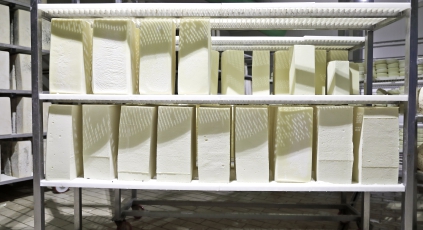
Seasoning
The maturing of our cheeses takes place on wooden boards. Our employees check all the cheeses on a daily basis, so that they can leave our factory only after reaching the optimal maturation.
Semi-hard cheeses are turned around every week to allow for better maturation. Hard (aged) cheeses are instead turned around and massaged on the rind with oil, so that the seasoning can be prolonged over time, keeping the organoleptic qualities unaltered.



